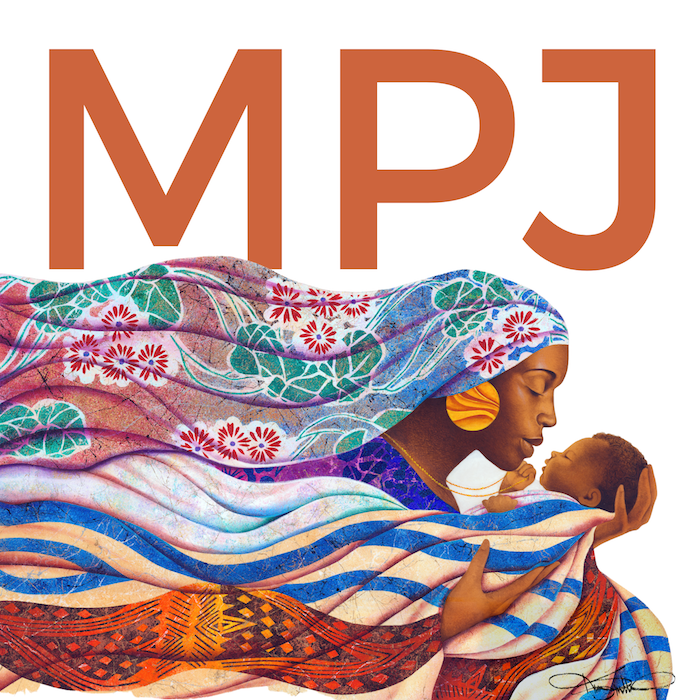Postpartum
Justice
The Seven Wisdoms Distilled from Traditional Postpartum Practices
1. Need for postpartum recognition and celebration.
2. Need to recognize a new mom’s vulnerability and her need to be nurtured and pampered.
3. Need for collective support of mom that is intergenerational and women-led.
4. Breastfeeding is natural and its success is directly linked to mother’s wellbeing.
5. Need for nourishment to heal the mother/birthing person and to breastfeed the baby.
6. Need for national peace to have optimal maternal and infant health.
7. Need to preserve knowledge for the next generation.
The Postpartum Storm
The “postpartum storm” is an analogy to describe the forces - racism, sexism, individualism, the erasure of traditional wisdom, and a profit-driven health care system - that are the root causes of the worsening maternal mortality crisis in the U.S. This page and its links provide resources exploring these issues and possible solutions through articles, videos, books, service, and advocacy. Feel free to reach out to send the MPJ team additional sources you find helpful for yourself and others..
Racism’s Impact on Postpartum Justice
Critical maternal health knowledge gaps in
The Health Care System and Racial Disparities in Maternal Mortality
Nothing Protects Black Women From Dying in Pregnancy and Childbirth
New York City Launches Initiative to Eliminate Racial Disparities in Maternal Death
Linking Global Health to Local Health within an Ob/Gyn Residency Program
Sexism’s Impact on Postpartum Justice
Individualism and Postpartum Justice
Women’s experiences of postnatal distress: a qualitative study
'So you're crazy?': the cultural barriers that make postnatal depression worse
Abandonment of Traditional Wisdom
Traditional Aboriginal birthing practices in Australia: Past and present
This review article summarizes common traditional birthing practices among aborigines. Mentioned perception of low infant and maternal mortality historically, giving credit to minimal interferences during the birthing process and the supportive role of older women in the tribe. Has comprehensive reference bibliography.
This research article compares traditional Chinese postpartum practices with those of Western medicine. It finds that most are highly beneficial and culturally engrained.
This research examines traditional postpartum recovery practices among mothers in Malaysia.
Traditional Postpartum Practices and Rituals: A Qualitative Systematic Review
This study looks at common traditions during the postpartum period for mothers in cultures across the world. It found that “organized support for the mother, periods of rest, prescribed food to be eaten or prohibited, hygiene practices and those related to infant care and breastfeeding” were similar traits that aided the recovery of the mothers.
6 Birthing and Postpartum Traditions From Around the World
This article gives a brief description of traditions carried out during and after birth in modern times among people in Bali, Turkey, Ecuador, Japan, the Netherlands, and Nigeria.
The Healthcare System and Postpartum Justice
Hospitals know how to protect mothers. They just aren’t doing it.
Every year, thousands of women suffer life-altering injuries or die during childbirth because hospitals and medical workers skip safety practices known to head off disaster, a USA TODAY investigation has found.
Presidential Task Force on Redefining the Postpartum Visit:Committee on Obstetric Practice
ACOG, the leading professional organization for obstetricians and gynecologists, made a new set of recommendations and conclusions to reinforce the importance of the “fourth trimester” and to propose a new paradigm for postpartum care.
A Tradition for New Mothers in China, Now $27,000 a Month
This article details a Chinese form of postpartum healthcare, which requires the new mothers to be at bedrest for an entire month while undergoing various forms of traditional Chinese therapy.
Maternal mortality is the shame of US health care
This article illustrates the alarmingly high rates of maternal death, especially among women of color, and how many of these deaths could be prevented.
The postpartum experience of mothers, birthing people, as well as those journeying through loss and pregnancy release is neglected in dominant US culture. Despite the fact that pregnancy related complications and mortality can occur up to 1 year after giving birth, there is a void in postpartum care in the US that contributes to maternal health inequities for Black mothers and birthing people. This led us to define postpartum justice and examine the interacting systems of oppression that contribute to postpartum-injustice for Black and Indigenous birthing parents.
Postpartum Justice is the set of values forming the foundation of postpartum care that is fair and equitable. It is free from sexism, racism and a health care system that is based on profit. Postpartum Justice recognizes society’s collective responsibility for all parents of new babies. It distills the postpartum wisdom of the past and transforms it to serve the future.
